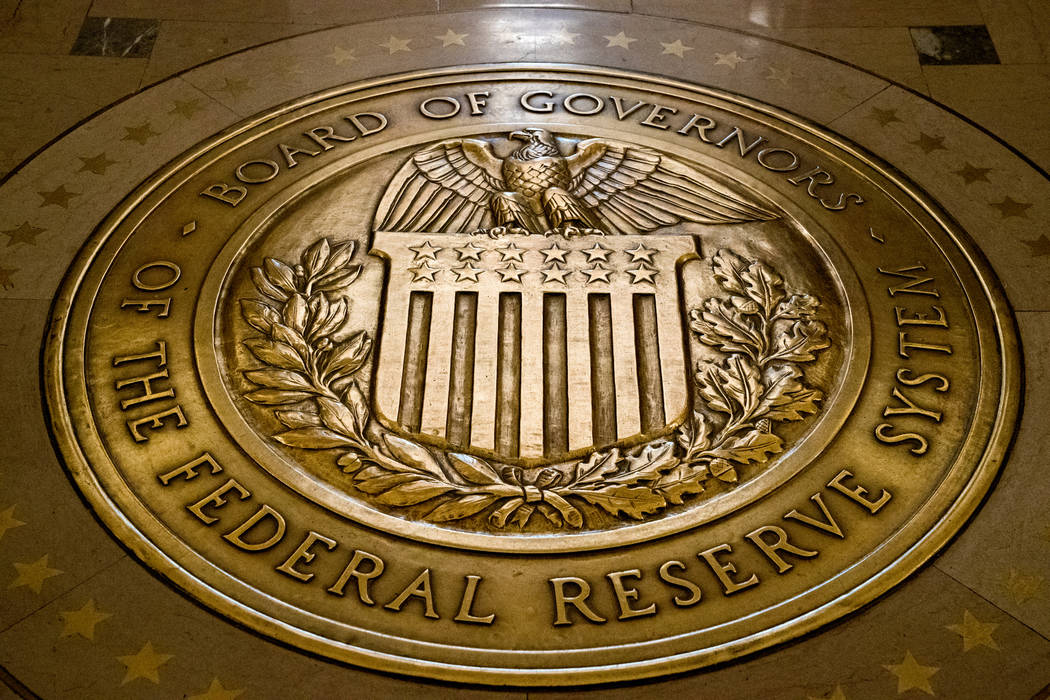COMMENTARY: Federal Reserve has no business becoming a climate change partisan
Recently at New York City’s Union Theological Seminary worshippers confessed their climate sins to plants. A sign of the times and, while amusing, harmless. But on a serious and worrisome score, the San Francisco Federal Reserve Bank is socializing embedding “climate-change” politics in financial regulation. The idea should be smothered in the crib. It would cause systemic capital misallocation, increase financial-system risk, make America poorer and, to wit, is beyond the Fed’s mandate.
The San Francisco Fed fired its first volley, suggesting that banks get extra credit for “climate-adaptation” loans under the Community Reinvestment Act. The act already politicizes banking, forcing banks to extend credit they otherwise wouldn’t and to buy off extortionist community activists to attest to their CRA bona fides.
If our central bankers believe mankind is dangerously warming the planet, it’s not their place to lawlessly address it by regulatory diktat. They should entreat the body constitutionally vested with law-making authority — Congress — to address the issue.
If they simply want to express their green piety, the Union Theological Seminary would be a more appropriate venue.
The CRA helped cause the financial crisis by incentivizing banks to make risky loans. Incorporating climate change as a criterion would make it far worse. The act should be repealed, not expanded by a lawless edict from the administrative state.
In 2018, the Fed remitted a whopping $65 billion in profits to the Treasury. It spends money running the central bank, regulating banks, processing interbank payments and on research and hosting conferences on monetary policy, the financial system and payments. All well and good.
However, the San Francisco Fed started publishing climate-change research and in November is hosting a conference on the economics of climate change. Whoa. Funds being expended to advance a political agenda, virtue signal and expand the Fed’s power should instead be remitted to the Treasury to reduce the deficit.
Invoking “climate change” provides cover for meddling in every aspect of the financial system. It’s dangerous. Yet there’s a stampede to impose severe costs on the financial system and economy writ large.
Climate-change theology holds anthropogenic CO2 drives the world’s thermostat, CO2 is a pollutant and dangerous greenhouse gas, the current climate is optimal, a warmer Earth would be bad for mankind and the only sensible response is a massive reduction in mankind’s economic activity and footprint. None of these beliefs is necessarily true.
We can’t test if God exists. We believe or not. Green eco-warriors believe in their religion. Many generally affluent and secular folk go along to attest to their Green piety. The Wall Street Journal’s Gerard Baker noted last week, “A movement that believes in sin, penance and salvation doesn’t sound very scientific.” Science is testable. The current climate-change models can’t predict the past.
The climate has been changing for 4.5 billion years.The Sun delivers 175,000 terawatts continuously to the Earth, which likely drives climate rather than SUVs and airplanes.
A warmer Earth might be good for most of mankind. And, if it weren’t, the more prosperous mankind, the better it can deal with a warmer or cooler planet.
The Fed has no authority to become a climate-change crusader. Its mandate is to pursue stable prices and full-time employment, to moderate long-term interest rates and to regulate banks. The central bank shouldn’t interest itself in climate change unless and until members of a politically accountable Congress were to pass and the president to sign legislation instructing it to do so.
If rigorous, testable, science suggested anthropogenic CO2 was materially warming the planet — and if it were potentially a problem — Congress should determine the appropriate policy response, if any. The Fed has no authority to become a climate-change partisan.
— Eric Grover is principal at Intrepid Ventures, a corporate development and financial consulting firm. He writes from Minden.

















